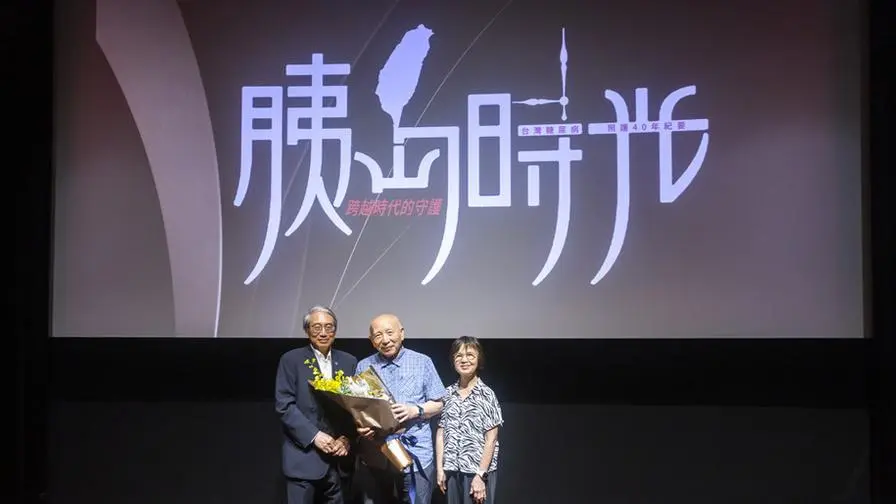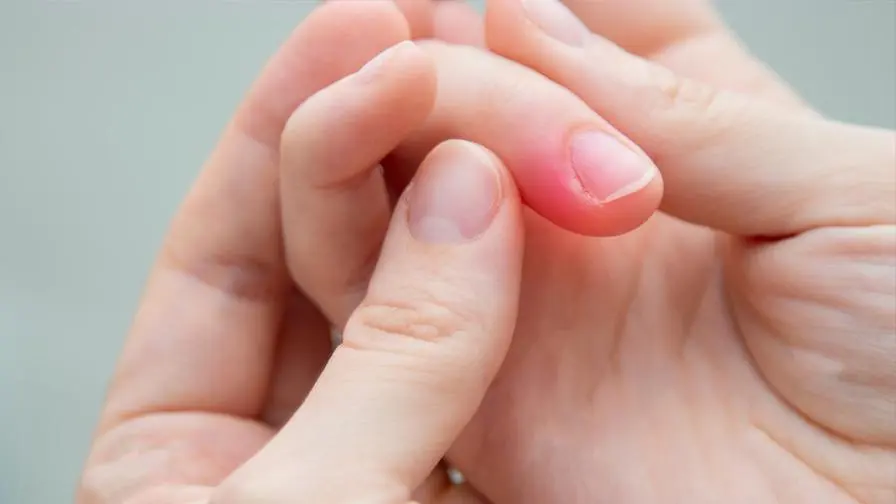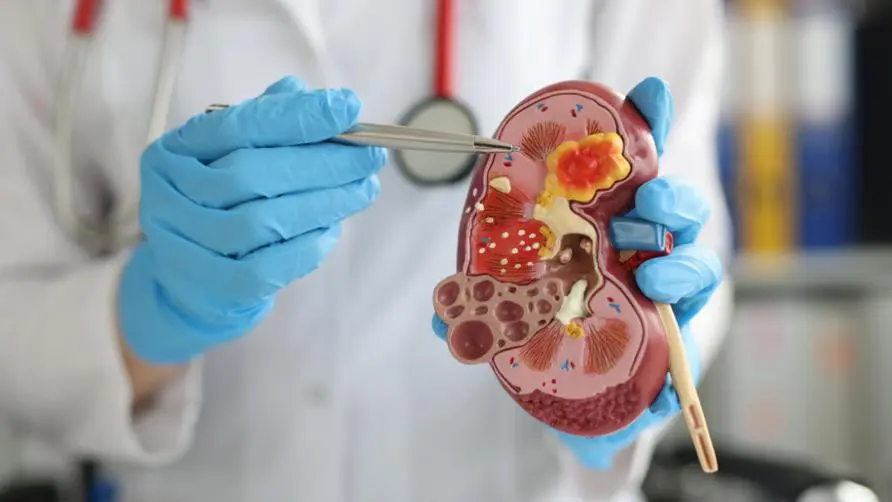A history of the evolution of diabetes care spanning 40 years! The premiere of Dahe Drama-style documentary "Islet Time" received enthusiastic response

The documentary “Islet Time” spanning 40 years of the evolution of diabetes care premiered on 6/15
“I fell ill during the summer vacation when I was studying for National Three. Because I suddenly lost more than ten kilograms in two or three months, my blood sugar exceeded 250 mg/dL. I was immediately hospitalized and diagnosed with type 1 diabetes. When my blood sugar level increased, in order to I was preparing for the college entrance examination and came to Taipei for medical treatment. Director Huang Hongshuo and the medical team made me re-understand type 1 diabetes, and provided health education and spiritual support to the patients through the association. Later, after I entered medical school. , determined to become a professional doctor in treating diabetes.”
As a doctor and a patient with type 1 diabetes, Colin Jiahong, director of Linkou Chang Gung Nutrition Therapy, said that he always told himself that he could not be defeated by diabetes. In the past 30 years of living with the disease, he has witnessed the progress and application of diabetes treatment in Taiwan. The promise of AI, stem cells, regenerative medicine, and more.
The Diabetes Care Foundation held the premiere of the documentary “Islet Time” at Guangdian Huashan on June 15. Through interviews with 79 doctors, health teachers, public health scholars, academic leaders, patients and family members, it was supplemented by literary evidence. , which records the evolution of diabetes care in representative hospitals and clinics across the island spanning more than 40 years. Chairman Cai Shize of the Diabetes Care Foundation said that the foundation adheres to the belief of “not allowing history to be reduced to ashes” and carefully planned and shot the documentary. The documentary was specially named “Islet Time” to highlight the importance of Taiwan, which is shaped like a pancreas. On the island, two generations of people have dedicated their lives to diabetes care.
From sub-specialty to inter-disciplinary integrated care, the diabetes and kidney care plan coverage reaches 50%
Chairman Tsai Shize said that the evolution and development of diabetes care in Taiwan is not only the epitome of chronic disease treatment in Taiwan, but also the highlight of Taiwan’s local medical care. Diabetes treatment has evolved from early general practice to sub-specialty care; from being dominated by a single physician, it has gradually transformed into interdisciplinary integrated care. The accessibility of medical treatment for patients, who initially could only go to large hospitals for treatment, can now get the same level of care at grassroots clinics.
“In terms of health education, we have not only institutionalized certificates and licenses, but also have minimum health insurance benefits for health education services. Coupled with the introduction of new drugs and new technologies, Taiwan has never lagged behind international standards, not only reducing the burden on patients and caregivers, but also promoting national Health and improve the well-being of all people!”
Chairman Huang Jianning of the Taiwan Diabetes Association further explained that in recent years, the association has promoted the “GOAL 50” goal. In addition to hoping that the proportion of diabetic patients joining the Gongzhao Network will exceed 50% to improve patients’ health knowledge, it also hopes that patients will comply with clinical medication guidelines. reaches 50%. Starting in 2022, the National Health Insurance Department will begin to implement an integrated care plan for diabetes and early-stage chronic kidney disease (DKD). With the efforts of the association, it is hoped that the coverage rate of diabetes and early-stage kidney disease (DKD) care plan will reach 50%, allowing Taiwan to Quality of care for diabetes treatment is comparable to international standards
Chronic disease care is as important as cancer! Diabetes care urgently needs more resources
Regarding the increasingly common symptoms of diabetes mellitus and kidney syndrome, Dr. Huang Shangzhi, Honorary Chairman of the Taiwan Society of Nephrology, shared that with reference to the diabetes care model, the Department of Health (formerly known as the Taiwan Ministry of Health and Welfare) has been piloting a kidney disease prevention and treatment plan since 2002. , hoping to establish a system and promote it to various institutions. In recent years, Taiwanese people’s awareness of kidney disease prevention has improved, and plans such as the Diabetes Care Network and the DKD Integrated Program have gradually taken effect. The overall incidence of kidney dialysis has been flat or even declining.
Regarding the future development of diabetes care, Xu Huiheng, deputy director of the National Health Research Institutes of Taiwan, believes that chronic diseases are as important as cancer in Taiwan, and the country should invest more resources in diabetes care. After years of promotion, diabetes care has covered the test data, medication and blood sugar control information of tens of thousands of patients through logging, and can progress to a new stage of precision treatment and health education. We are relatively early in the world. If we can use precision medicine, genetic medicine, and big data, Taiwan can have another bright future in the world of diabetes in the future.
Too much knowledge comes from others, but too little comes from oneself! “Islet Time” commemorates the unsung heroes on the road to anti-diabetes
“This Dahe-drama-style record of diabetes care allows us to look back on the past and draw lessons from the past. We should also pay special tribute to senior professors such as Cai Shixian, Lin Ruixiang, Dai Dongyuan, and Lai Meishu who laid the foundation for diabetes care in the difficult days of the past.”
Chairman Cai Shize said sincerely that looking back on the past 40 years, he has learned to gather his will, break through countless bottlenecks, and witness many beautiful moments; he also hopes that after watching the film, newcomers will know the ups and downs, understand the gains and losses, and achieve greater success. He also quoted another Type 1 patient Zhu Peichen’s words: “We have received too much from others, but too little have come from ourselves.” He expressed his gratitude to all participants, especially the many unsung heroes, for their contribution to better health and happiness. Taiwan, for its endless efforts and selfless dedication.
Extended reading:





